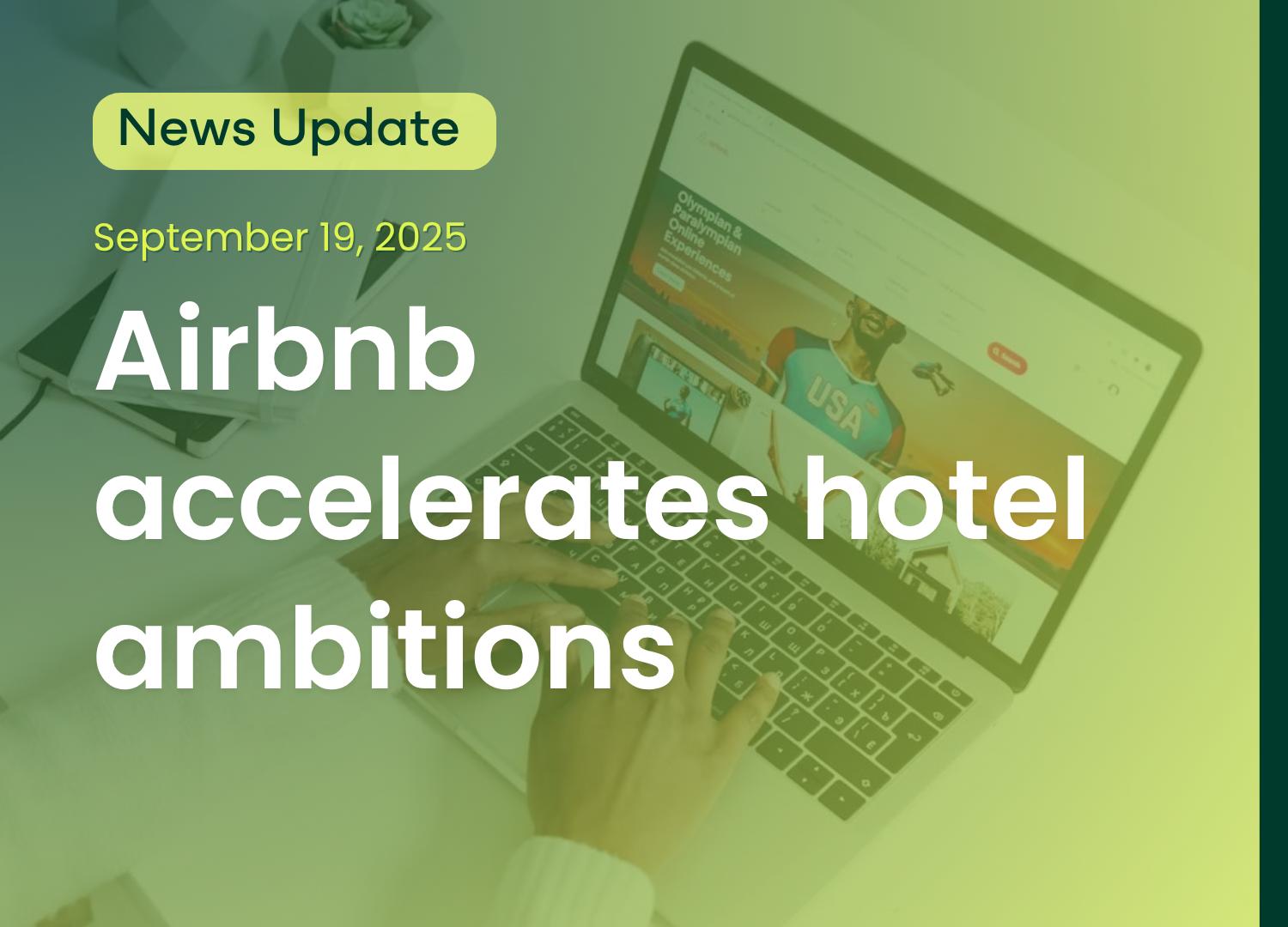European hotels sue Booking.com over rate limits
This week brings some potentially game-changing developments for the hospitality industry. A massive legal challenge against Booking.com could reset the balance of power between hotels and OTAs in Europe. Meanwhile, U.S. performance forecasts are cooling, major brands are leaning on global growth, and regulations in key markets are shifting demand patterns. Distribution partners are also stepping up their game with new products and partnerships, pushing hotels to rethink their channel strategies.
Here’s what you need to know to keep your revenue strategies sharp.

European hotels take Booking.com to court over pricing restrictions
In one of the most significant legal actions the hospitality industry has seen in years, over 10,000 hotels from across Europe have joined forces in a class-action lawsuit against Booking.com. Coordinated by HOTREC, Europe’s umbrella organization for hotels, restaurants, and cafés, and backed by national groups like Horeca Vlaanderen in Belgium, the lawsuit claims the OTA’s “best-price” clauses, long a point of contention, illegally restricted hotels’ ability to set their own room rates.
The disputed “best-price” clauses
These clauses, in place from 2004 to 2024, required hotels to offer their lowest publicly available rate on Booking.com, preventing them from providing better deals on their own websites or through other channels. While Booking.com argued the rules were meant to prevent “free-riding” on their marketing spend, the European Court of Justice ruled them illegal last September under the EU’s Digital Markets Act.
Impact on hotel pricing freedom
For two decades, many hoteliers felt boxed in—forced to maintain rate parity even when direct booking channels offered a more profitable path. The lawsuit now seeks financial compensation for the revenue hotels say they lost due to these restrictions. If the plaintiffs win, the ruling could not only result in significant payouts but also set a legal precedent, giving hotels far greater flexibility to adjust rates dynamically based on demand, seasonality, or customer loyalty.
What’s at stake for the industry
The potential ripple effects are huge. Independent and branded hotels alike could gain new leverage in negotiations with OTAs, and direct booking strategies might finally have room to flourish without fear of contractual penalties. However, with Booking.com denying it has received formal notification of the lawsuit and disputing the claims, the case is likely to be a long and hard-fought battle.
Why revenue managers should watch closely
A favorable outcome could fundamentally change rate-setting strategies in Europe, shift the balance of power in distribution, and reshape how hotels approach their digital marketing mix. For revenue managers, this is not just a legal story—it’s a potential game-changer for long-term profitability and competitive positioning.
U.S. hotel growth forecasts revised downward
Analysts at the Hotel Data Conference have lowered their projections for U.S. hotel performance in 2025–26. Demand, ADR, and RevPAR are all expected to grow more slowly than previously anticipated, pressured by persistent inflation, higher operating costs, and softer leisure travel demand.
While a recession isn’t expected, tighter margins will require hotels to double down on cost management and creative revenue optimization. Protecting GOPPAR in this environment may mean revisiting rate strategies, exploring alternative revenue streams, and targeting more resilient guest segments.
Spain’s new rental law could shift demand towards hotels
From mid-August, all short-term rental properties in Spain must display a national registration number or risk being delisted from platforms like Airbnb. The law is designed to curb overtourism and improve housing availability, with potential tax increases on rentals also under consideration.
For hotels, especially in tourist-heavy destinations, reduced short-term rental inventory could mean more opportunities to capture leisure demand. Those ready with targeted offers and marketing campaigns may see a direct boost in occupancy.
Expedia raises its 2025 outlook on strong Q2
Expedia has upped its growth forecast after a strong second quarter, fueled by B2B and advertising revenues, international expansion, and a high-profile partnership with Southwest Airlines. AI-driven personalization is helping boost conversion rates and guest satisfaction scores to record highs.
With OTAs investing heavily in technology and market reach, hotels should closely track how these changes affect distribution costs and booking patterns—and adjust their own channel strategies accordingly.
Booking.com launches U.S. credit card to drive direct bookings
Booking.com has introduced the Genius Rewards Visa in the U.S, offering travel credits and automatic top-tier loyalty status. The move is designed to strengthen customer loyalty and increase direct OTA traffic.
For hotels, this could make OTA-driven guests even harder to convert to direct channels. Enhancing loyalty programs and refining direct booking incentives will be essential to stay competitive.
Otamiser is the world leader in OTA optimization, Otamiser helps hotels across Europe, the U.S., and Asia improve OTA rankings and revenue through data-driven pricing and local market insights.




.svg)
.svg)


.jpg)


%201.avif)

